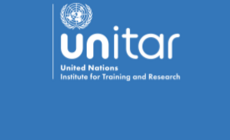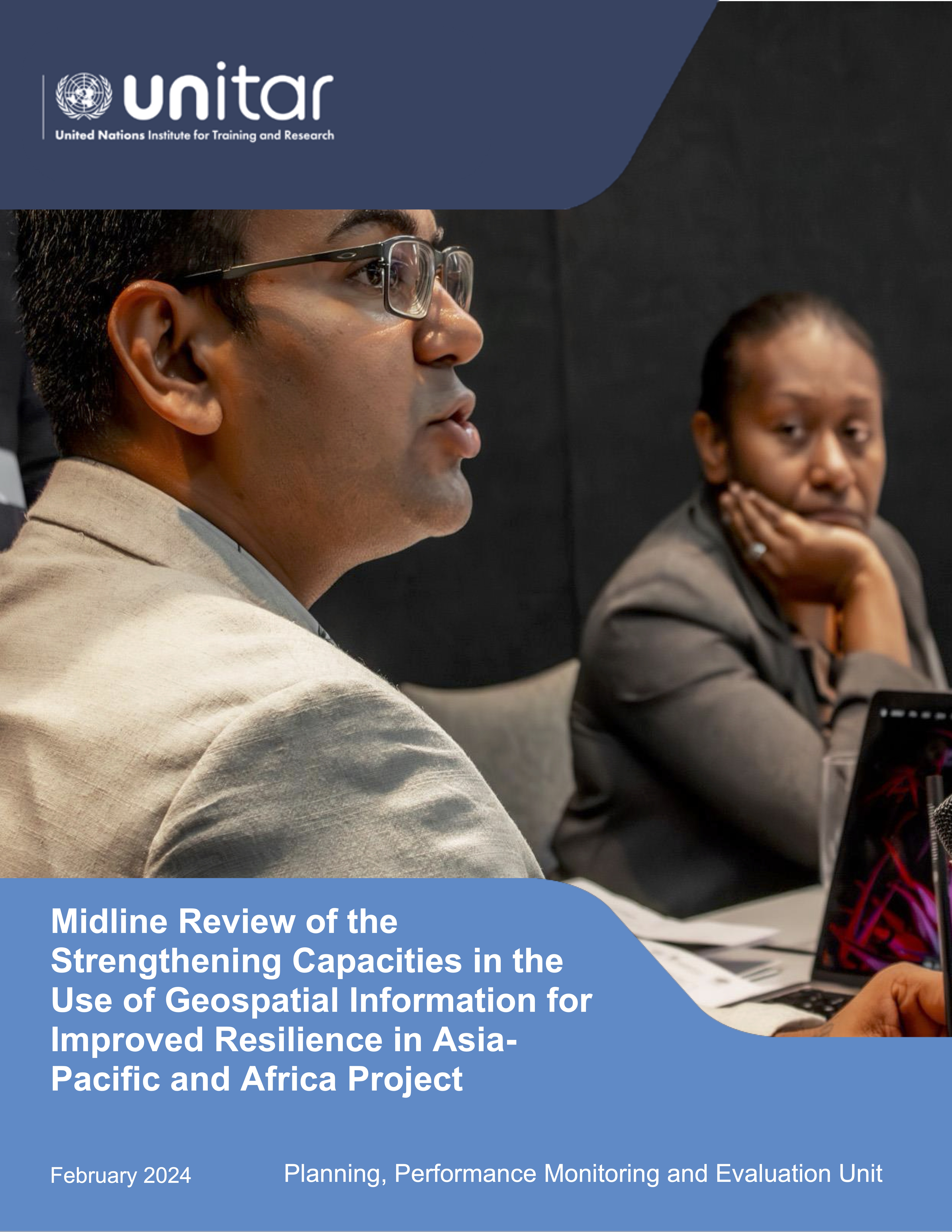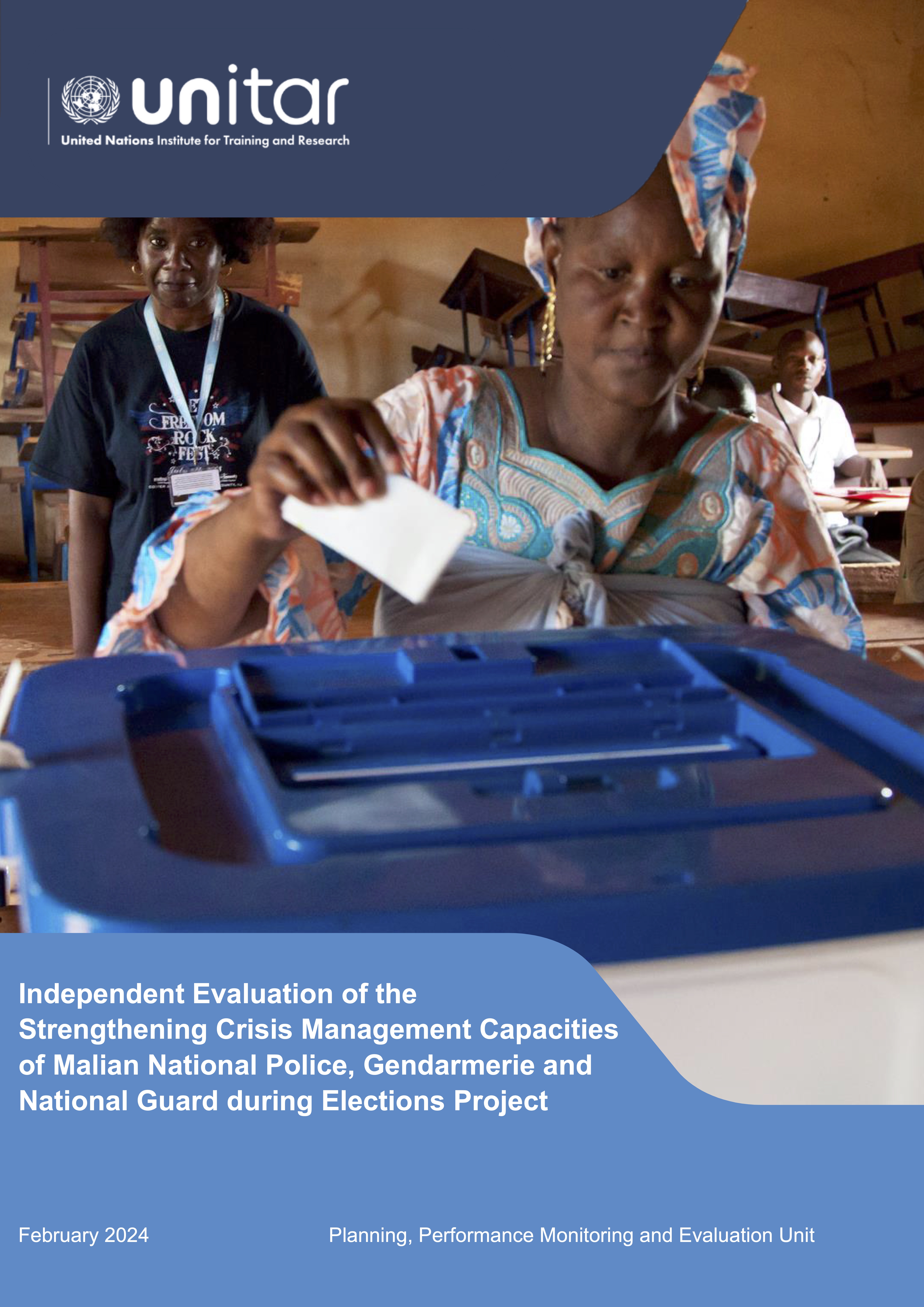Institution Background
The United Nations Institute for Training and Research (UNITAR) is a dedicated training arm of the United Nations. Established in 1965 pursuant to a United Nations General Assembly resolution, UNITAR aims to strengthen the effectiveness of the United Nations through appropriate training and research. UNITAR’s mission is to develop the individual, organizational and institutional capacities of countries and other United Nations stakeholders through high quality learning solutions and related knowledge products and services to enhance global decision-making and to support country-level action for overcoming global challenges. Approximately two thirds of UNITAR’s programming relate to learning outcomes. The Institute is entirely funded through voluntary contributions.
Evaluation Function
The evaluation function is performed at the central and decentralized levels and is guided by the Evaluation Policy and an Evaluation Advisory Board. The Planning, Performance Monitoring and Evaluation Unit is the custodian of the evaluation function. The unit works to strengthen the Institute’s accountability framework, programme effectiveness and efficiency and organizational learning. In addition to performing central monitoring and reporting functions, the unit undertakes independent evaluations of projects and other undertakings. An independent evaluation is mandated for all projects budgeted at $1.5 million and above. The Unit also evaluates strategies, funding instruments and undertakes cluster evaluations.
Parallel to the central unit and in accordance with the policy, all UNITAR programmes and offices undertake project and activity level self-evaluations. The Evaluation Unit provides guidance and support to UNITAR programmes units and offices.



